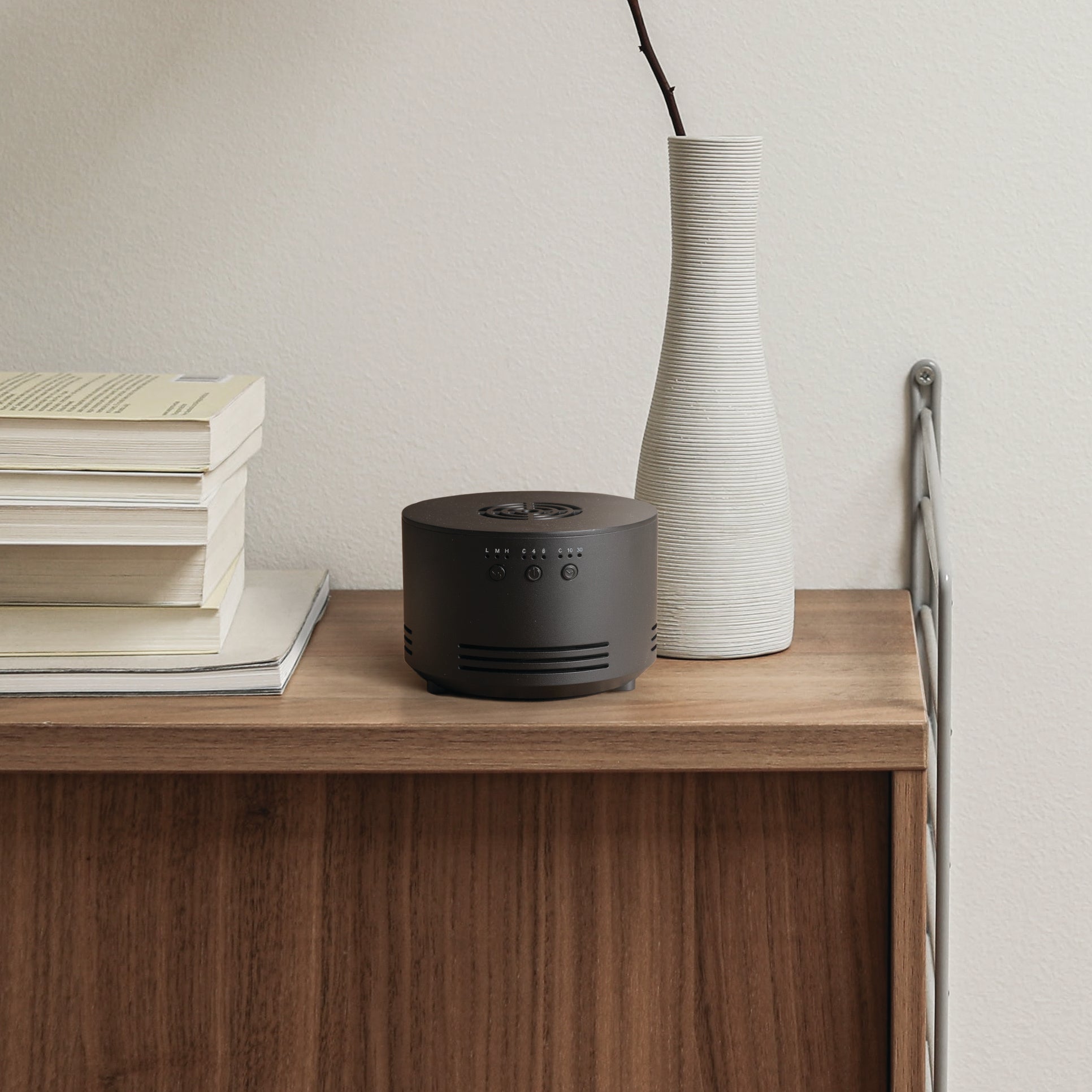Article: Exploring the Role of Olfactory Stimulation in Reducing Neural Inflammation: Applications for Post-COVID Anosmia, and Cognitive Decline

Exploring the Role of Olfactory Stimulation in Reducing Neural Inflammation: Applications for Post-COVID Anosmia, and Cognitive Decline
Abstract
Neuroinflammation is a shared pathophysiological mechanism underlying post-COVID anosmia and cognitive decline in Alzheimer’s disease (AD). This whitepaper explores the potential of olfactory stimulation through scent-based interventions to reduce inflammation, promote neural plasticity, and enhance memory to establish a protocol for both conditions. Recent research highlights parallels in mechanisms of action and therapeutic implications, suggesting that structured olfactory training can mitigate neural damage, improve cognitive function, and support recovery. While promising, these interventions require rigorous clinical trials to validate efficacy and optimize application protocols.

1. Introduction
Olfactory dysfunction, whether caused by viral infections such as COVID-19 or neurodegenerative diseases like AD, is increasingly recognized as an indicator of broader neural health. Both conditions involve damage to olfactory pathways and associated brain regions, such as the olfactory bulb and hippocampus, which are critical for sensory processing and memory. Elevated neuroinflammatory markers characterize these conditions, contributing to persistent dysfunction and cognitive decline. This paper explores the hypothesis that scent-based interventions can simultaneously stimulate neural recovery, reduce neuroinflammation, and enhance cognitive function., appropriate for both conditions.

Recent advancements, such as those presented by Dr. Michael Leon and colleagues at UC Irvine, have demonstrated that olfactory enrichment significantly enhances memory performance. In one groundbreaking study, older adults exposed to a variety of scents during sleep showed a remarkable 226% improvement in memory (Leon et al., 2023)10. These findings underscore the potential of olfactory stimulation to affect neural circuits associated with memory, offering novel therapeutic pathways for addressing cognitive impairment.
2. Mechanisms of Neural Inflammation and Recovery
2.1 Olfactory Dysfunction in Post-COVID Anosmia
COVID-19-induced anosmia is associated with inflammation of the olfactory epithelium and bulb, likely driven by dysregulated immune responses and cytokine overexpression. Pro-inflammatory cytokines such as IL-6 and TNF-alpha have been implicated in persistent anosmia (Brann et al., 2020)1. Olfactory training has demonstrated efficacy in reducing cytokine-mediated damage and promoting neural plasticity. One study highlighted that systematic exposure to therapeutic scents enhanced recovery rates in post-COVID anosmia by engaging olfactory bulb pathways (Mayo Clinic Proceedings, 2023)2.
2.2 Neurodegeneration in Alzheimer’s Disease
In AD, chronic inflammation in the hippocampus, driven by microglial activation and the accumulation of amyloid-beta plaques, leads to cognitive decline. Neuroinflammation plays a central role in propagating neural damage, with microglia-driven inflammation contributing to synaptic loss and cognitive deficits (Heneka et al., 2015)3. This chronic inflammatory response exacerbates oxidative stress and inhibits neurogenesis, further compounding cognitive impairments.
These findings align with prior studies showing that the hippocampus, a memory-critical region, is uniquely susceptible to neuroinflammation but responsive to targeted interventions.
3. Olfactory Stimulation as a Therapeutic Tool
3.1 Shared Mechanisms
Both post-COVID anosmia and AD-related cognitive decline involve:
- Neuroinflammation: Elevated pro-inflammatory cytokines impair neural function and regeneration.
- Neuroplasticity Impairments: Neural circuits lose the ability to rewire and compensate for damage.
- Oxidative Stress: Overproduction of reactive oxygen species (ROS) exacerbates neural injury.
3.2 Anti-Inflammatory and Cognitive Benefits of Olfactory Stimulation
Olfactory stimulation addresses these mechanisms by:
- Reducing Neuroinflammation: Stimulating the olfactory bulb can dampen pro-inflammatory cytokine activity and modulate microglial responses⁵.
- Promoting Neuroplasticity: Engaging the hippocampus through olfactory input enhances neurogenesis, critical for memory recovery⁶.
- Enhancing Memory Function: Exposure to varied scents during sleep significantly improves memory performance, as demonstrated by Leon et al.¹⁰. These findings suggest that olfactory enrichment strengthens synaptic connections in memory-related brain regions.

4. Evidence Supporting Olfactory Training
4.1 Post-COVID Anosmia
Structured olfactory training, involving exposure to scents such as rose, lemon, clove, and eucalyptus, has been shown to significantly improve olfactory function in post-viral anosmia cases⁷. Participants exposed to these scents twice daily for six months demonstrated enhanced neural repair and reduced inflammation in the olfactory bulb⁸.
4.2 Alzheimer’s Disease and Cognitive Decline
Research from the National Institute on Aging showed that nightly exposure to rotating scents (e.g., rose, lemon) over six months correlated with improved hippocampal activation and slowed cognitive decline⁹. Similarly, Leon et al. observed that targeted olfactory enrichment during sleep not only enhanced memory performance but also activated hippocampal regions associated with long-term memory consolidation¹⁰.
5. Therapeutic Implications
5.1 Post-COVID Anosmia
Scent therapy offers a structured, non-invasive mechanism to restore olfactory function by reducing inflammation and engaging neural repair pathways. However, compliance and accessibility remain challenges that need to be addressed. A simple tracking app could resolve this.
5.2 Alzheimer’s Disease
The hippocampus’ vulnerability to inflammation underscores the potential for olfactory stimulation as an adjunct therapy. Memory enhancement, as shown by Leon et al., suggests that olfactory interventions could serve a dual purpose: slowing cognitive decline and improving quality of life. Integration with existing therapies may further enhance outcomes.

6. Conclusion
The convergence of olfactory dysfunction, neuroinflammation, and cognitive impairment suggests that olfactory training could serve as a dual-purpose intervention for post-COVID anosmia and Alzheimer’s-related cognitive decline. By leveraging the unique connection between the olfactory system and key neural circuits, scent-based therapies show promise in mitigating these conditions. Future research should prioritize larger clinical trials, standardization of protocols, and long-term evaluation of outcomes to validate this therapeutic approach.
References
- Brann DH, et al. Non-cell-autonomous disruption of the olfactory epithelium in COVID-19. Science Advances. 2020.
- Mayo Clinic Proceedings. Persistence of inflammation in post-viral olfactory loss. Mayo Clinic Proceedings. 2023.
- Heneka MT, et al. Neuroinflammation in Alzheimer’s Disease. Lancet Neurology. 2015.
- Doty RL. Olfactory Dysfunction in Alzheimer’s Disease and Related Disorders. Annals of the New York Academy of Sciences. 2010.
- Santos SA, et al. Monoterpenes as Anti-Inflammatory Agents. Journal of Ethnopharmacology. 2020.
- Frontiers in Neurology. Neuroplasticity in olfactory training. Frontiers in Neurology. 2023.
- Oleszkiewicz A, et al. Olfactory Training in Post-Viral Olfactory Loss: Systematic Review. Clinical Otolaryngology. 2020.
- Psychology Today. The science of smell recovery. Psychology Today. 2023.
- National Institute on Aging. Effects of olfactory stimulation on hippocampal activation. Journal of Alzheimer’s Disease. 2023.
- Leon M, et al. Sweet smell of success: Simple fragrance method produces major memory boost. Frontiers in Psychology. 2023.







Leave a comment
This site is protected by hCaptcha and the hCaptcha Privacy Policy and Terms of Service apply.